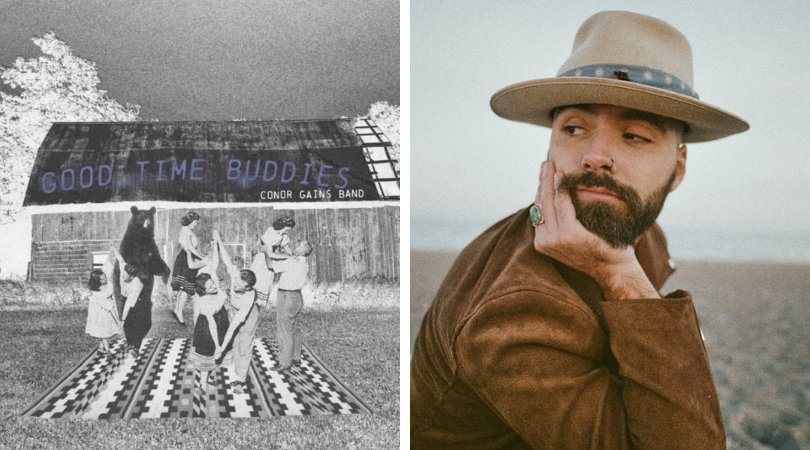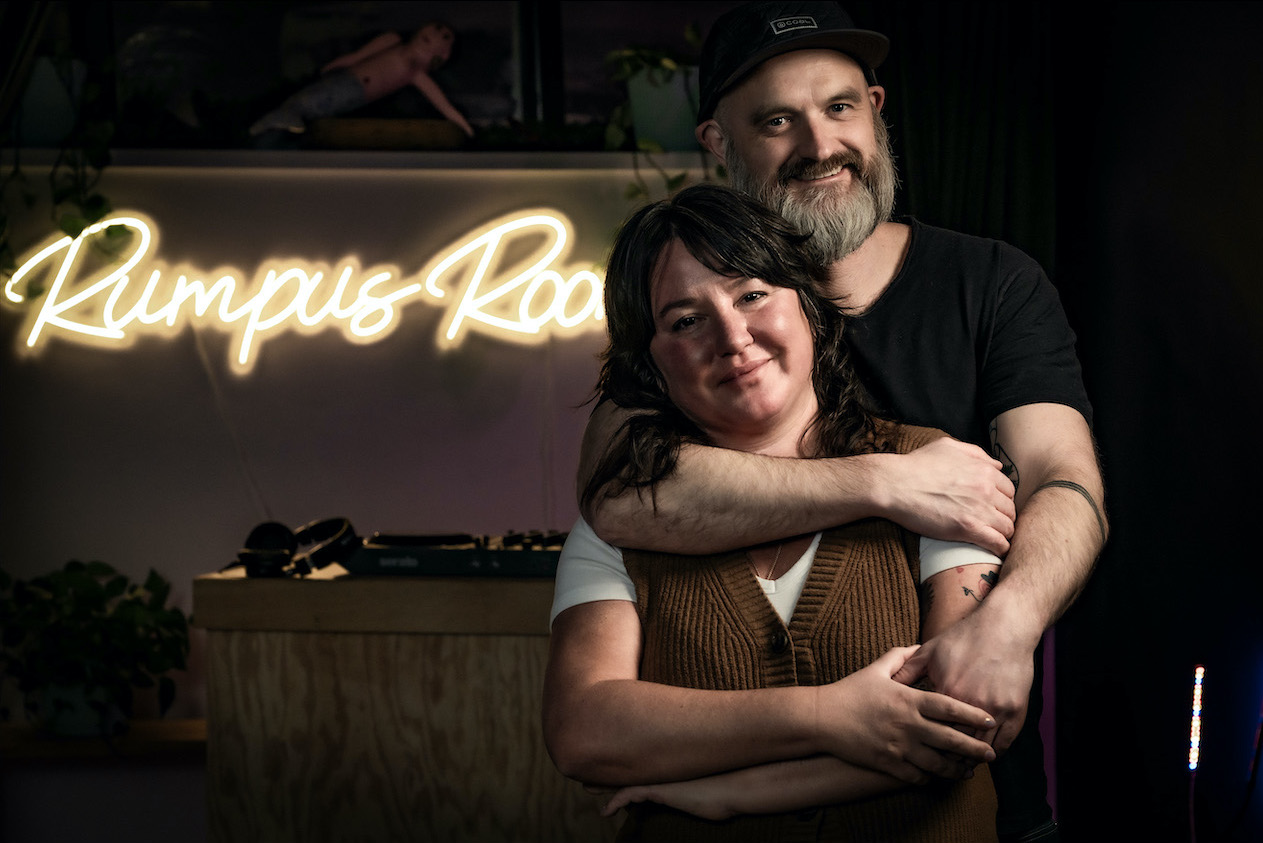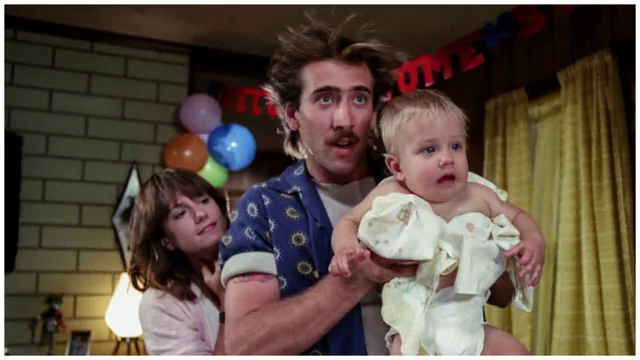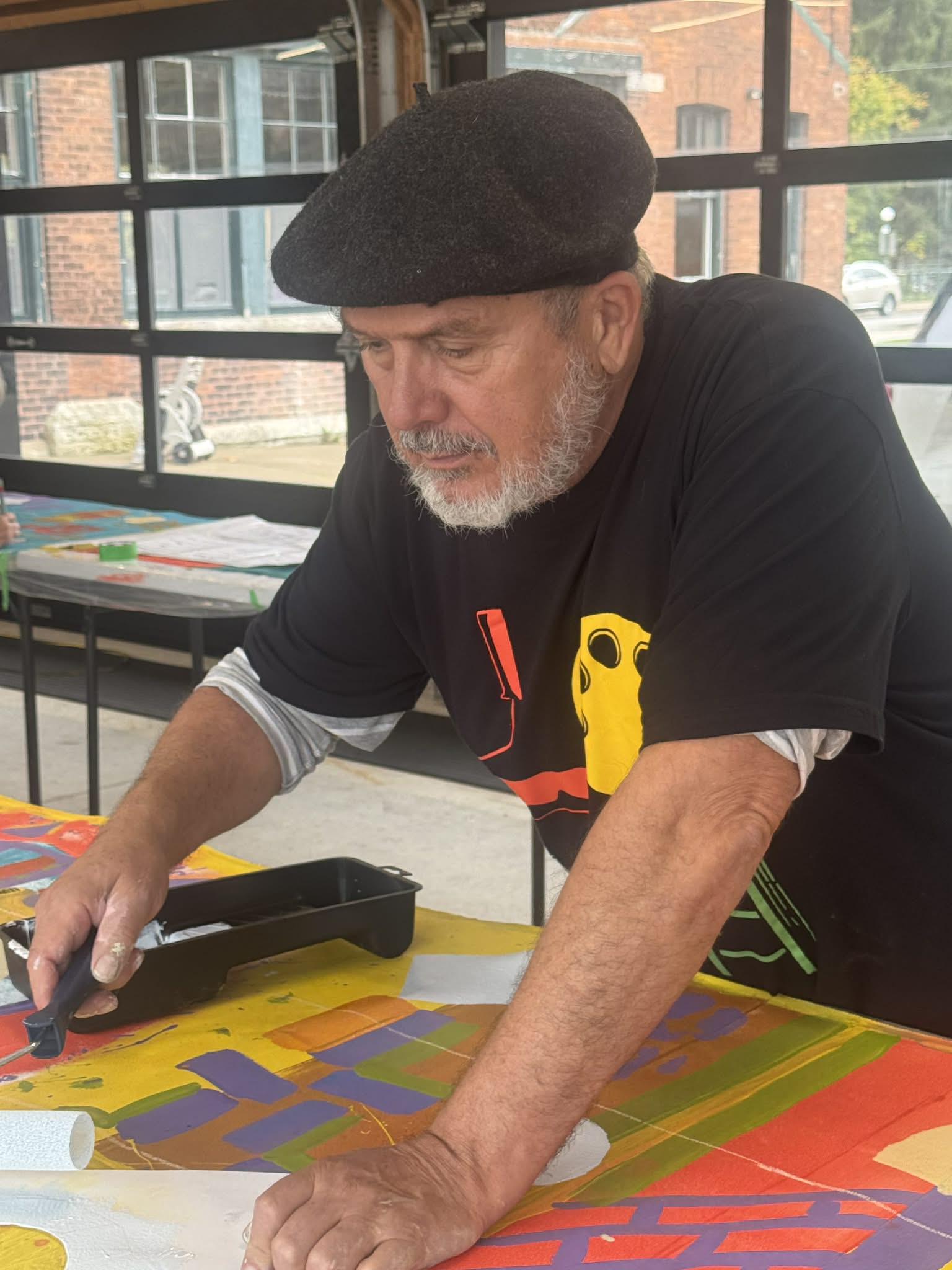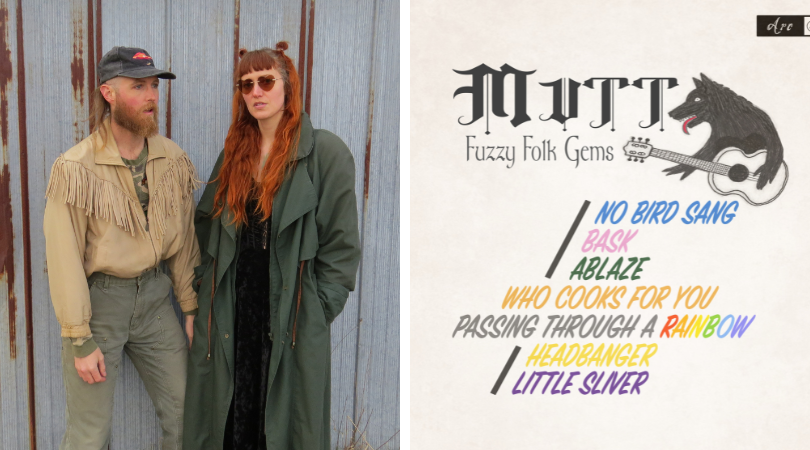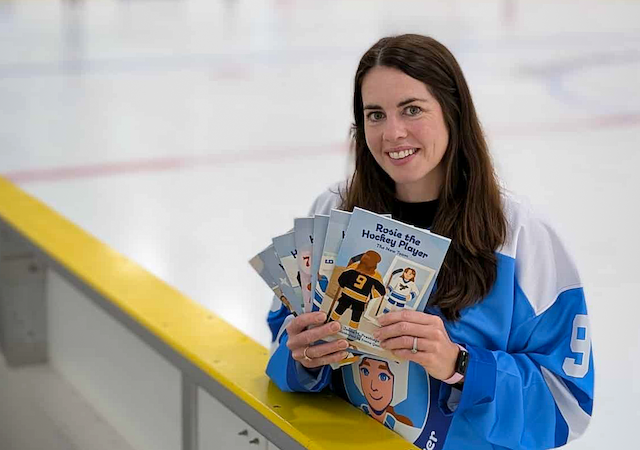For an artist who’s been touring, writing and recording as long as Conor Gains has, I often wonder “how do you make something that sounds truly new?” Listening to this new effort from The Conor Gains Band, this question is answered immediately, then 9 times more.
Let’s get right to the point: this album is a triumph. It embodies the kind of confidence that only comes with age and experience. What I take away from these 10 tracks is the importance of friendships, growth, feeling your feelings and battling your battles.
Playing in the spaces that live between genres, everything Conor is doing on this record feels intuitive. There’s no gloating, nothing to prove, the vocal performances feel like 2am campfire sessions: laid back and calculated in the same breath. The grooves move and the energy dynamic shifts eloquently; the record feels like a live performance because as I listen to it, I feel like I’m in the studio, the bar hall, or the theatre it’s being played in.
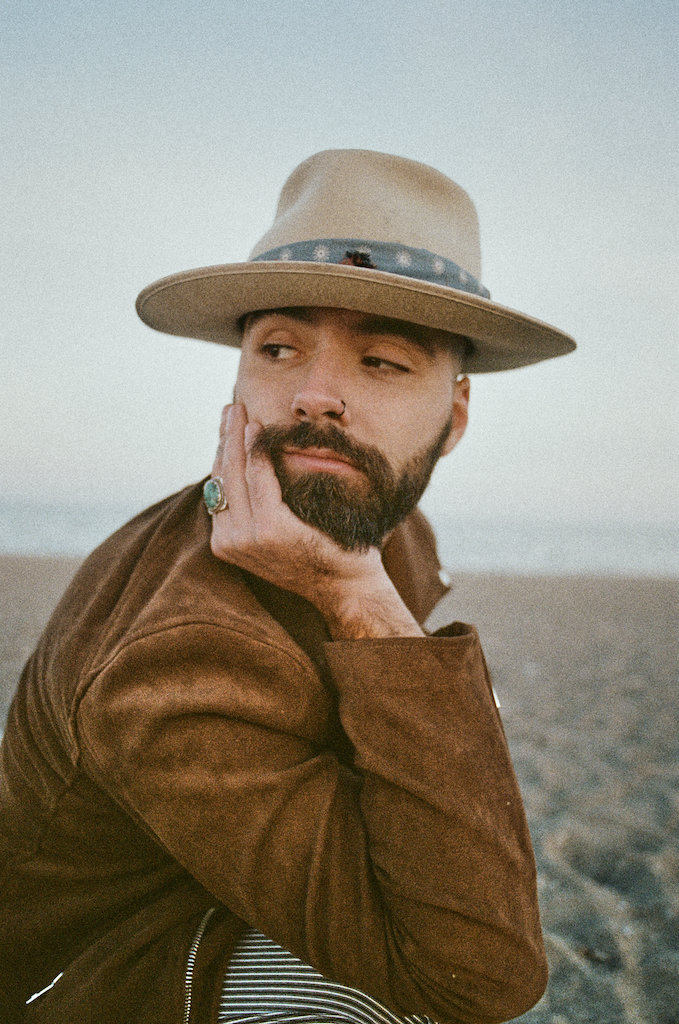
While I pick up on influences from heavy hitters like Dire Straights, The Allman Brothers and Nathaniel Rateliff, each and every one of these songs is entirely his own. Through them, Conor is speaking honestly and openly without any frills. He isn’t trying to be something he’s not, which is a welcome dose of oxygen in a sometimes damp room.
On the first listen of Good Time Buddies, I’m walking through a snowstorm, but I feel as though I can smell the smoke of barbecues grilling in the wildflower-lined, string light-lit alleyways of an Austin neighbourhood in the evening.
While this album transports me to a warmer place, it isn’t to say that Conor avoids addressing the heavy and colder components of life in this effort. On the contrary, while the album feels, upon first listens, like a no holds barred celebration, it also seems as if there’s not an alleyway too dark for Conor to go down. When it comes to addressing the nuances in the side effects of living, he’s not afraid to get right into it.
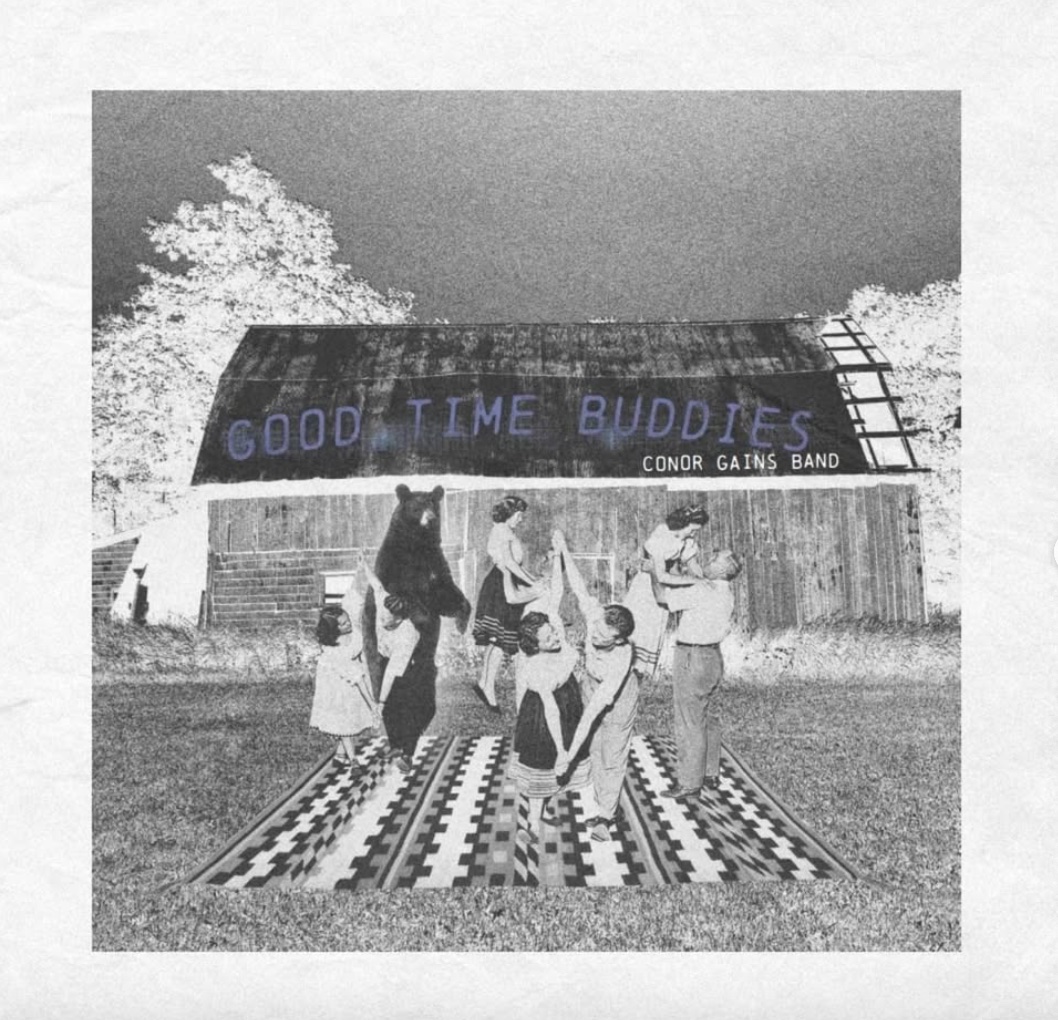
When he sings, “There ain’t no cure for a love that don’t love you anymore,” he speaks to the hopeless sense of anguish that accompanies heartbreak; something that immediately transports me to times in my life when I’ve lost love, something anyone with a pulse understands.
In Many Waves, he sings, “where were you when I got home? Because I sat there at the window and I waited til dawn,” over the catchy, but somewhat sombre groove that carries his emotional delivery through the track. This plain-spoken approach to a nuanced issue surrounding personal quandaries, expresses this powerful sense of how it feels to be trampled by someone, and the shift in our own personal character that this can lead to. This track is a great example of the power in naming your pain. It addresses the problem, calls it out plainly, then accepts that to move forward and to move on are synonymous in healing.
In Boomerang, rich wisdom is shared through the smooth-sailing textures of a wavy rubber bridge guitar slapping and plucking its way along as Conor sings, “truth needs no reason, like a bomb, like a friend.” Finding a way to cover a surprising amount of ground in so few words.
Reflection and lament come to a head in my personal favourite track, Just The Blues. This song punctuates a full track list of bangers in a nearly eight minute performance of a song that reads like a poignant stream of consciousness. Again, Conor takes the opportunity to shine light on heavily emotional circumstances, but does so without creating a weight for the listener to bear. He’s painting a picture, one that comes from a life filled with earnest pain, regret, lessons and living.
When listening to new music, I often feel the subconscious burden of an up-and-comer carefully adhering to the rigid guidelines of a three minute radio track here, a bubble gum single there, a photo shoot here, a paid press release there; until I hit a point where I feel like I’m listening to the sonic equivalent of a harlequin romance novel. No big ups or downs, a predictable resolve and an overall sense of “hurry up and make a hit!”
A record like Good Time Buddies does the opposite. Not only does it take the time to breathe as a whole, but the songs say something meaningful without consulting online forums to decide what’s “in”, who to pander to or which size of belt buckle to wear when playing them.
Through these songs, I feel the authenticity of a voice speaking from a place of familiarity, carried by the chops that come from commitment to a craft. This is real fucking music. Thank god.
Written by Marshall Veroni

